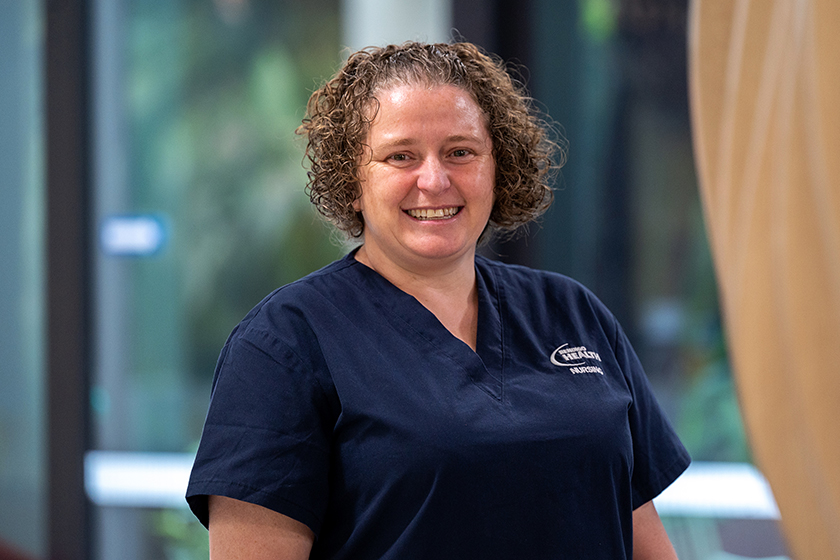
Peta Naughton is helping pave the way in specialist cancer nursing in her new role, as an expert resource to those navigating a melanoma journey.
In August, Peta started as the first Melanoma Nurse Coordinator in regional Victoria funded by the Australian Government, as part of a national drive to improve navigation support and outcomes in Melanoma across Australia.
Based at the Bendigo Cancer Centre, she will improve patient’s experiences and outcomes by providing expert nursing care, clinical advice, care coordination and navigation support for patients diagnosed with high-risk melanoma.
This includes support following diagnosis, pre- and post-surgery and across the treatment phases which can include: chemotherapy, immunotherapy and radiotherapy. Peta brings a wealth of knowledge, oncology experience and passion to this new role.
“Having a Medical Oncology nursing background, I have seen how melanoma treatments have significantly improved since the introduction of immunotherapy and targeted therapies and what this means to patients and their families,” she said.
Approximately 17,000 Australians are diagnosed with invasive melanoma each year, with one Australian diagnosed with melanoma every 30 minutes.
In the Loddon Mallee region, it is the sixth most common cancer with approximately 225 diagnoses a year.
Funded by the Australian Department of Health and Aged Care, the Melanoma Institute Australia is hoping to change these statistics by supporting the National Melanoma Nurses Program in partnership with healthcare providers like Bendigo Health to fund these roles.
This will support and address identified gaps in melanoma patient care.
Peta will work closely with the melanoma multidisciplinary team, establish effective working relationships, contribute to face-to-face medical and/or surgical consultations, inform and guide planning and more.
They will demonstrate clinical expertise in melanoma management with the consideration for Clinical Practice guidelines and Optimal Care Pathways, including; stages of disease, treatment recommendations for various stages, early detection and management of symptoms (and side effects of treatment), precautions/protocols associated with treatments, the importance of clinical trials, supportive care, the principals of palliative care and health promotion, advocacy and prevention.
Peta said she is “passionate about ensuring that all patients with Melanoma get equal access to high quality cancer care that is tailored to their Individual cancer and needs”.
“Having the privilege to be a melanoma nurse coordinator enables me to place the melanoma patient at the centre of their journey, ensuring safe and quality care from a multidisciplinary team in line with the Cancer Council Optimal Care pathways,” she said.
“By providing patients and their families education, support and facilitating self-efficacy in navigating the health care system through active participation in their health care and treatment decision making, improving melanoma patients’ overall health and wellbeing outcomes.”